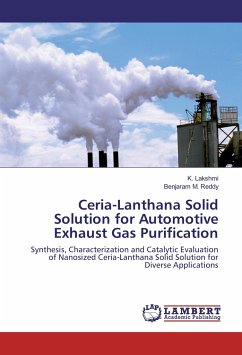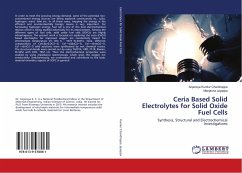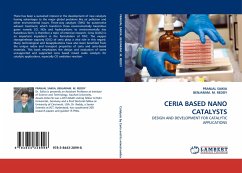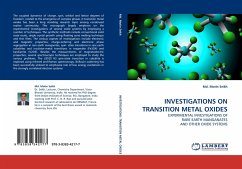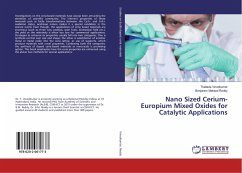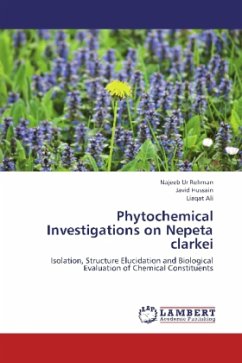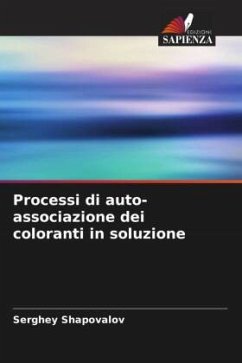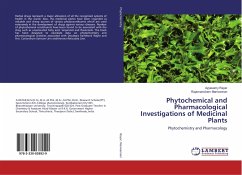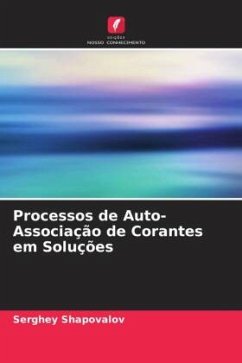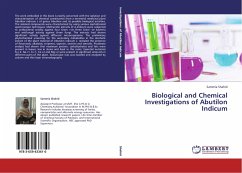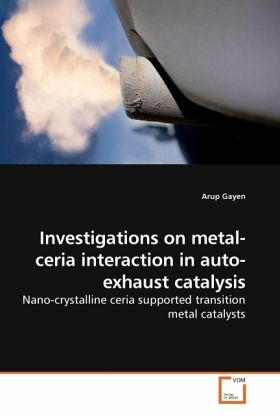
Investigations on metal-ceria interaction in auto-exhaust catalysis
Nano-crystalline ceria supported transition metal catalysts
Versandkostenfrei!
Versandfertig in 6-10 Tagen
52,99 €
inkl. MwSt.

PAYBACK Punkte
26 °P sammeln!
With the increasing pace of urbanization and industrialization, environmental pollution has become a major global concern. The auto-exhaust pollutants are responsible for a variety of adverse health effects, global warming, acid rains, and town smog. Noble metals supported on alumina are the usual catalytic materials, wherein a rare earth oxide, usually ceria, is added as a promoter. The higher catalytic activity is generally attributed to metal-support interaction. Understanding of the metal-ceria interaction in these catalysts has thus been an issue in the literature. From the present study,...
With the increasing pace of urbanization and industrialization, environmental pollution has become a major global concern. The auto-exhaust pollutants are responsible for a variety of adverse health effects, global warming, acid rains, and town smog. Noble metals supported on alumina are the usual catalytic materials, wherein a rare earth oxide, usually ceria, is added as a promoter. The higher catalytic activity is generally attributed to metal-support interaction. Understanding of the metal-ceria interaction in these catalysts has thus been an issue in the literature. From the present study, the actual interaction of metal and ceria is shown to be ionic that is substitution of metal ion for cerium ion in the reducible ceria support. The stabilization of the metal in ionic form over ceria certainly hinders sintering into metal particles. This study therefore explains the qualitative description in catalysis literature, namely, high dispersion, higher oxygen storage capacity, higher catalytic activity, metal-support interaction of metal-ceria systems.



